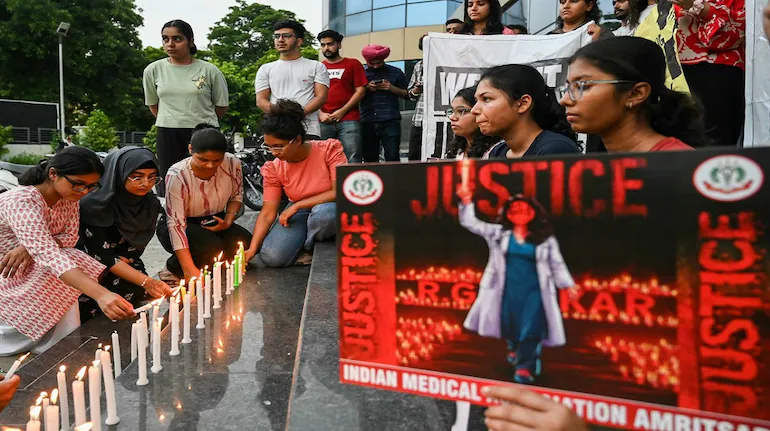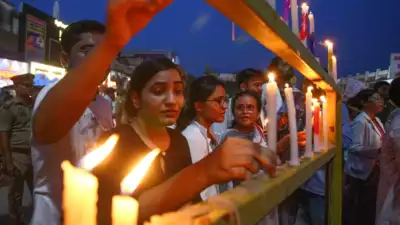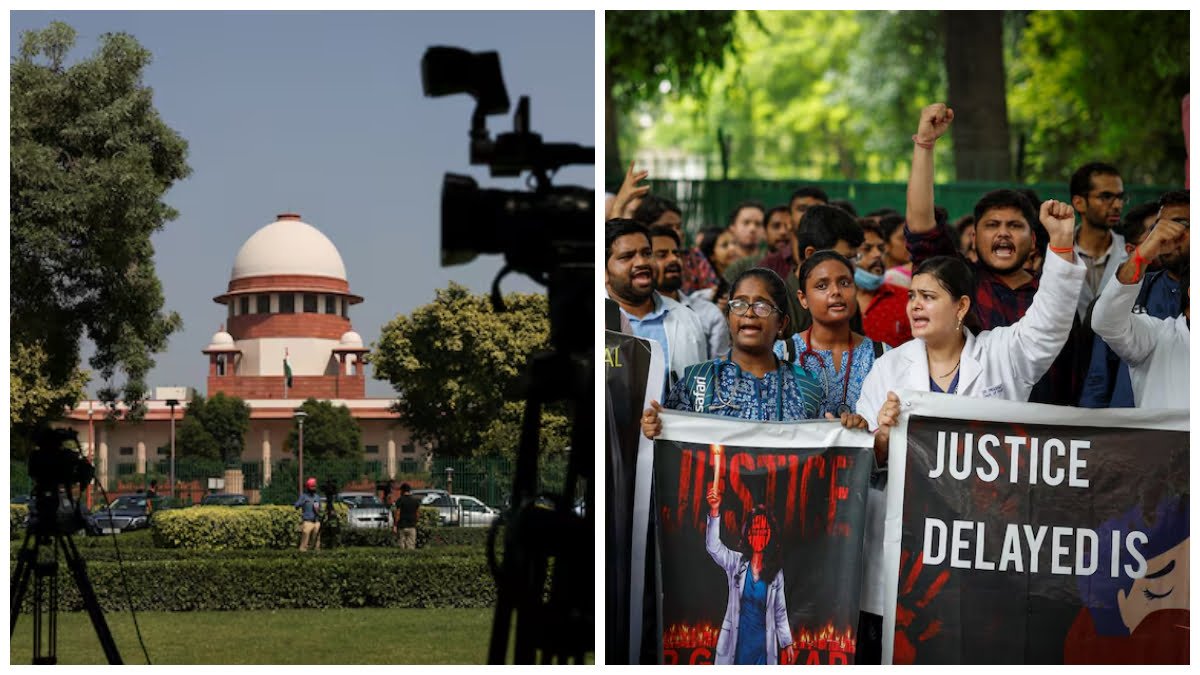Key Highlights:
The tragic rape and murder of a young woman at Kolkata’s RG Kar Medical College has sparked nationwide outrage, leading to widespread protests and a strike by doctors at AIIMS. The strike, which significantly disrupted healthcare services, was called off after the Supreme Court made an urgent appeal to the doctors, emphasizing the need to resume their duties while ensuring that justice is served. This article explores the events leading up to the strike, the Supreme Court’s intervention, and the broader implications of this case on India’s healthcare and legal systems.
Background of the Kolkata Rape-Murder Case
The horrifying incident at RG Kar Medical College in Kolkata, where a young woman was brutally raped and murdered, has shocked the nation. The case came to light when the victim’s body was discovered under suspicious circumstances, leading to an immediate investigation. The accused, including hospital staff, were apprehended, but the incident raised serious questions about safety and security within medical institutions.

The victim’s family, supported by various activist groups, has been demanding swift justice. The incident has not only highlighted the vulnerabilities women face but has also underscored the urgent need for reforms in how such cases are handled within institutional settings.
The Doctors’ Strike: A Call for Justice
In the wake of the incident, doctors at AIIMS, along with other medical professionals across India, initiated a strike as a form of protest. The strike aimed to draw attention to the need for a safer working environment, not just for patients but also for healthcare workers who often face threats and violence.

The doctors’ strike was seen as a powerful statement against the increasing instances of violence in medical institutions. However, it also led to significant disruptions in healthcare services, causing concern among patients and the general public.
Supreme Court’s Intervention
The Supreme Court of India, recognizing the gravity of the situation, intervened by making an urgent appeal to the striking doctors. The Court urged the medical professionals to resume their duties, stressing that the delivery of healthcare services should not be compromised. The Supreme Court assured the doctors that their concerns would be addressed and that the legal process would ensure justice for the victim.
Following the Court’s appeal, the doctors called off their strike, demonstrating their commitment to both their patients and the pursuit of justice. The Supreme Court’s intervention was crucial in balancing the need for protest with the imperative of maintaining essential healthcare services.
Impact of the Strike on Healthcare Services
The doctors’ strike, although short-lived, had a profound impact on healthcare services across India. Many patients faced delays in receiving medical attention, and elective surgeries were postponed. The strike highlighted the critical role that doctors play in the healthcare system and how their absence can lead to widespread disruption.
While the strike was a powerful tool for raising awareness about the need for safer work environments, it also brought to light the ethical dilemmas faced by healthcare professionals when balancing their duty to patients with their right to protest.
Public and Political Reactions
The incident and the subsequent strike have elicited strong reactions from the public and political figures alike. Many have expressed outrage over the incident, calling for stringent measures to ensure the safety of women in public spaces, including hospitals. The public has also shown support for the doctors, understanding the challenges they face in their profession.
Political leaders, including those from West Bengal, have weighed in on the issue, with some urging for calm and a return to normalcy, while others have called for immediate reforms in how such cases are managed within the healthcare system.
The Aftermath: What Lies Ahead?
With the doctors back at work, the focus now shifts to ensuring that justice is served in the Kolkata rape-murder case. The Supreme Court’s assurance that the legal process will be expedited has provided some relief to the victim’s family and the public. However, the incident has raised critical questions about the safety protocols in medical institutions and the need for better support systems for both patients and healthcare workers.
Going forward, it is essential that both the healthcare and legal systems work together to prevent such incidents from occurring again. There is also a growing demand for policy changes that address the root causes of violence in medical institutions and provide better protection for those working in the healthcare sector.
Conclusion
The Kolkata rape-murder case has brought to light the vulnerabilities faced by women and healthcare workers in India. The doctors’ strike, while disruptive, was a necessary call for attention to these issues. The Supreme Court’s intervention helped restore balance, ensuring that healthcare services were not compromised while also committing to justice for the victim. As the legal process continues, it is crucial that the lessons learned from this incident lead to meaningful changes in both the healthcare and legal systems, ensuring safety, justice, and trust for all.
Sources: Hindustan Times, Times of India,
For Latest News Updates Click Here
